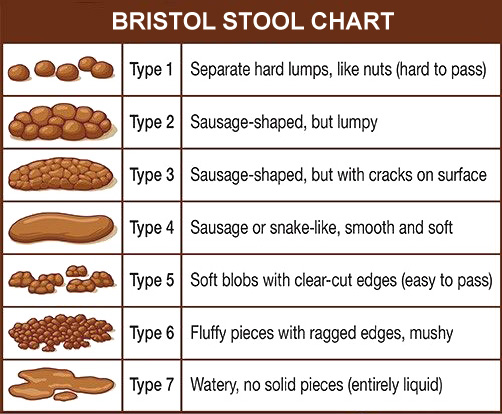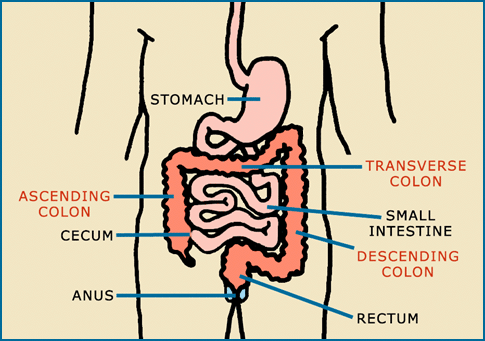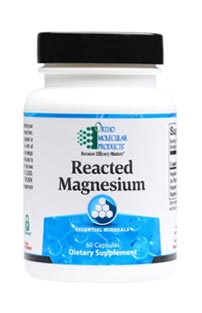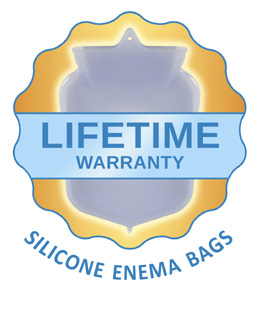How To Know When Constipation Is Serious
How Do I Know If I'm Constipated?
How Can I Cure Constipation at Home?
Infant & Newborn Constipation
Constipation is something that millions of Americans experience daily. It can be uncomfortable, frustrating, and sometimes frightening. But how do you know when it's really serious? When is the right time to take action, and what can you do to treat constipation at home?
How Do I Know If I'm Constipated?

According to the American College of Gastroenterology, there are over 2.5 million doctor visits for constipation annually in the US. Indications that you are constipated include:
- having fewer than three bowel movements per week
- straining excessively when passing stools
- stools that are lumpy or hard
- feeling like you're not able to fully empty your bowels
- experiencing pain when passing stools
The Bristol Stool Chart (see diagram) is a medical aid that was designed to classify human feces into seven types. Generally, if you have Type 1 or Type 2 stools, you are constipated. If you have Type 3 stools, your bowels aren't being emptied enough, and you are likely dehydrated. Type 4 stools are ideal.
The Mayo Clinic says that chronic constipation occurs when one has infrequent bowel movements or difficulty passing stools for several weeks or longer.
How Often Should You Poop?
Kristina Amelong, CCT, CNC, addresses the question "how often should you poop?" in this short video. Kristina discusses the different types of stools outlined on the Bristol Stool Chart, common causes of constipation, and steps you can take to improve the health of your colon and the quality of your stool, including long-term magnesium supplementation and short-term cape aloe (Aloe ferox) usage for constipation.
How Do I Know When It's Time To See a Doctor?
It can be difficult to know when it’s necessary to see a doctor for constipation, but if you're experiencing one or more of the symptoms below, or if you think your constipation may be caused by a medication you’re taking, you should see a doctor as soon as you can:
The Bigger Issue With Constipation

Although the list above outlines the symptoms that may be present when constipation is serious enough that you should see a doctor, any amount of constipation should be considered serious enough that you should try to address the issue quickly, before it causes larger problems, in both the short and long term.
The colon is a highly absorptive organ, and stool is the waste of our body, full of toxins, carcinogens, unhealthy microbes, discarded hormones, and more. If we aren't moving out stool daily, we are reabsorbing waste and creating an ideal home for disease-promoting microbes. This is unhealthy for your colon, as well as the rest of your body.
There are a wide range of health problems that can arise due to constipation, including fatigue, obesity, irritable bowel syndrome, chronic gas and bloating, headaches, mood and hormonal imbalances, allergies, muscle aches, anal fissures, and hemorrhoids. Chronic constipation can also contribute to high blood pressure, blood sugar imbalances, high cholesterol, and fibromyalgia.
All of these health issues can potentially be eased or even eliminated by addressing bowel function and finding the constipation cures that work for you.
Constipation in Infants

Infant constipation symptoms are similar to those of adults:
- grunting, straining, or visible discomfort when passing a bowel movement
- hard and/or dry stools that are difficult to pass
- reduction in the frequency of bowel movements (especially if your infant hasn't had one for more than two days)
Your infant should be checked by a pediatrician if his or her bowels do not move daily.
▶ More information on infant constipation symptoms and treatments
A newborn infant should have his or her first stool within 24 hours after birth. Failure to pass a stool by 48 hours of life may signify a more serious condition, such as Hirschsprung's disease, meconium ileus due to cystic fibrosis, or hypothyroidism. Further evaluation of the infant is needed if no bowel movement has occurred within the first 48 hours.
Natural Remedies for Constipation
Kristina Amelong, CCT, CNC discusses natural remedies for constipation that you can use from the comfort of your own home. Suggested remedies include dietary changes, colon cleansing using a 3-step enema series protocol, and taking supplements such as reacted magnesium, Endo-Met's GB-3, and vitamin C.
How Can I Cure Constipation at Home?
▶ DIET
Diet is one of the most important things you can change to reduce constipation. According to Dr. Wes Jones, author of Cure Constipation Now, the most common cause of constipation is inadequate amounts of fiber in the diet. If you're experiencing constipation, be sure to eat plenty of high-fiber foods, such as fruits, vegetables, beans, and whole grains.
Limit your intake of processed foods and dairy as much as possible.
Dehydration is often a cause of constipation, so drink plenty of water as well.
▶ EXERCISE
Not exercising enough can be another cause of constipation, so exercising regularly is an important lifestyle change to make if you’re experiencing constipation.

▶ DIETARY SUPPLEMENTS
I have designed a more comprehensive bowel management protocol over the years to address the body as a whole system. This protocol utilizes magnesium and three additional supplements that work together to help optimize bowel function and relieve constipation without creating imbalances.
- Reacted Magnesium - Magnesium is a therapeutic, laxative-like supplement that can be titrated to bowel tolerance. It is safe and effective for adults, children, and infants in helping to empty the bowel daily. Crucial for proper bowel function, magnesium is the number one mineral that people tend to be deficient in. Constipation, muscle cramps, teeth grinding, and irritability are all possible signs of a magnesium deficiency
- Endo-Met GB-3 - This supplement enhances biliary output and optimizes bowel function by supporting protein digestion, liver cleansing, and detoxification.
- Vitamin C — Many people find that vitamin C supplements can have a laxative side effect, so while vitamin C is not specifically meant to be a stool softener or laxative, taking it as a supplement can help support bowel movement. It's beneficial for your immune system and overall health as well. I recommend taking 1-2 capsules of Ortho Buffered C daily, or 1-2 teaspoons of Researched Nutritionals C-RLA Liposomal Vitamin C one to three times daily.
- Probiotics such as Ortho Biotic and Researched Nutritionals CoreBiotic — Maintaining a healthy, balanced microbiome is key to having regular bowel movements. Taking an oral probiotic daily can improve the health of your microbiome immensely, and help relieve constipation. I recommend taking two CoreBiotic capsules before bed daily for one month, then taking two Ortho Biotic capsules daily for one month. Repeat this cycle, rotating these two probiotics, for six months.
- For your convenience, we also offer the OHN Constipation Relief Kit which includes everything to get you started on my recommended bowel management protocol — one bottle each of Ortho Reacted Magnesium, Endo-met GB-3, Ortho Buffered C, and Researched Nutritionals CoreBiotic — together in a single purchase.
- Bowel Management Protocol: View Full Details
▶ OPTIONAL PURGATIVE (Temporary Use Only)
- Super Aloe - This is an effective herbal product for those that suffer from irregularity and need temporary relief of constipation. This bitter substance acts as a tonic and a purgative, helping to purge the bowels in 6 to 24 hours.
▶ COLON CLEANSING
Regular colon cleansing is a superb tool for the permanent relief of constipation. Before drugs companies, colon cleansing was the tool of choice for relief of constipation by doctors. Unfortunately, most laxatives can harm the colon, the stomach, the small intestine, and the nervous system. In addition, laxatives do nothing to bring the body into biochemical balance and a state of optimal functioning.

As a professional colon hydrotherapist, I have designed Easy Home Enema Kits for relief of constipation. Each kit includes an enema bag or enema bucket, 6 feet of enema hose, an enema hose clamp, and a choice of enema nozzle. All enema bag kits include a stainless steel hook for hanging the bag.
▶︎ View Home Enema Instructions & Recipes
Summary
When you keep your bowels moving on a daily basis, you are much more likely to stay healthy and vital into old age. Your digestive system is everything to your health.
While any amount of chronic constipation is serious, if you’re experiencing abdominal pain, blood in your stool, or vomiting, or you think your constipation may be a side effect of a medication, you should see a doctor.
If you experience less severe but persistent constipation, changing your diet and lifestyle are the most direct and effective ways to address your constipation and prevent larger health issues from arising. Home enemas and supplements such as reacted magnesium can be very powerful additional tools to combat constipation and improve the health of your colon.
By Kristina Amelong, CCT, CNC
I-ACT-Certified Colon Hydrotherapist
Certified Nutritional Consultant

▶︎ Need more detailed guidance in treating constipation?
Personal Health Consultations with
Kristina Amelong, CCT, CNC
For personalized support with your home health program, I would be happy to assist via a scheduled phone consultation. I charge an affordable $2.25 per minute, for as many or as few minutes as you need!
First complete any relevant sections of my secure online intake form. Upon submitting the form, you will be prompted to schedule a consultation time with me via my online booking system.
If you are an international client who would like to use WhatsApp for your scheduled consultation, please email us for instructions on how to contact me at the time of your consultation.